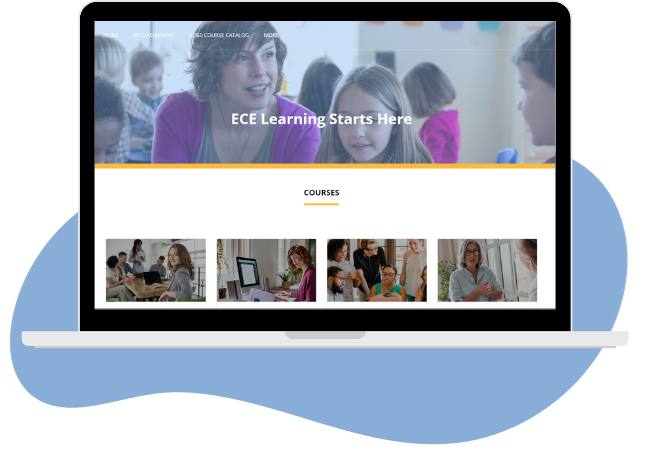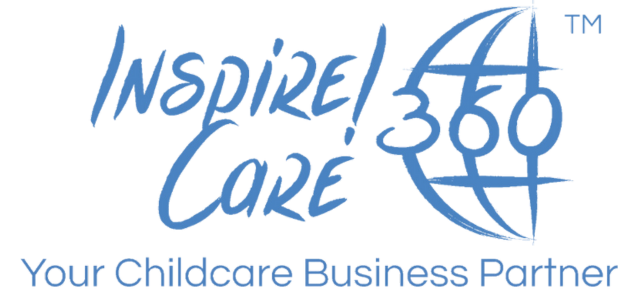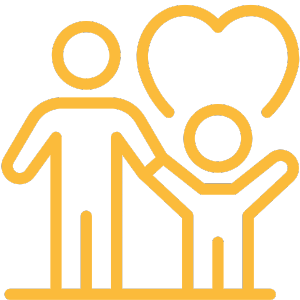| Administrative Procedures - Advanced | Administrative Leadership is complex, with at least two separate but interrelated facets: operational leadership and strategic leadership. In this course you will learn about:
• DEFINING ADMINISTRATIVE LEADERSHIP provided the information you need to begin to build your operational leadership capacity.
• ACHIEVING DESIRED OUTCOMES provided the information you need to begin to build your credibility, prioritize talent development, and focus on family engagement.
• ESTABLISHING EFFECTIVE SYSTEMS provided the information you need to build your operational leadership capacity, with attention to executing change, managing resources, and planning for growth and development.
• INFLUENCING ORGANIZATIONAL
• CLIMATE provided the information you need to build your operational leadership capacity, with special attention to increasing employee engagement. | Owner and Administrator | 2 | 0.2 |
| Administrative Procedures - Fundamentals | Operational leadership focuses primarily on management functions associated with supporting staff to achieve program outcomes, establishing effective systems, and influencing organizational climate.
• CUSTOMER SERVICE will provide you with the information you need to make a good first impression and maintain positive relationships.
• EMPLOYEE RELATIONS will provide you with the information you need to meet your school's recruitment and retention goals.
• FACILITY MANAGEMENT provided guidance related to the physical plant (the building itself) and its people and programs, too. | Owner and Administrator | 2 | 0.2 |
| Approaching in an Anti-Bias Way | Throughout this course teachers and childcare providers will learn how to educate young children in an anti-bias and a multicultural approach.
- Identify the goals of an anti-bias multicultural approach
- Reflect on their own biases and attitudes about diversity
- Analyse ways to respond to discrimination and stereotypes in the classroom
- Give examples of ways to questions and comments
- Evaluate the classroom environment and materials to meet the goals of this approach
- Select appropriate books about anti-bias and the multicultural approach
- Compare appropriate and inappropriate ways to use theses topics in your curriculum
- Give examples of appropriate activities to plan for young children
- Identify ways to ensure your program is welcoming and respectful to all families and children | Teachers and Administrators | 5 | 0.5 |
| Becoming an In-Charge Team Member | You will learn about the characteristics of and how to become an aspiring leader.
• Describe the leadership credentials for your position.
• Describe the characteristics of an aspiring leader.
• Understand the importance of your organization's vision, mission, and key tasks.
• Know how to appropriately respond to mistakes on your team.
• Utilize the L.A.C.E. method.
• Guide junior leaders. | Teachers and Administrators | 1 | 0.1 |
| Becoming and Making Friends First | Friendship begins as a young age. Throughout this course you will gain understanding of what friendship is at different ages and how to promote friendship and social skills for young children.
- Describe the stages of friendship
- List basic social skills
- Identify strategies for promoting social skills and building friendships | Teachers and Administrators | 1 | 0.1 |
| Being Unique | Every child is unique in their own way. Throughout this course you will learn to identify different behaviors and learning styles. You will learn how to adapt your teaching to acommidate all students.
- Identify characteristics and learning styles which make each child unique
- Describe various temperaments
- Determine the learning style of an individual child
- Give examples of how to adapt activities | Teachers and Administrators | 3 | 0.3 |
| Bi-Lingual Students In Your Classroom | Adding another language into your program is a great way to include diversity and culture within your center. Throughout this course you will learn how to implement a duel language program into your center and support diverse language learners.
- Identify dual language learners
- Identify the importance of meeting the needs of dual language learners
- Describe language acquisition in dual language learners
- Describe ways to prepare a program that supports dual language learners.
- Identify strategies for supporting dual language learning and development. | Teachers and Administrators | 2 | 0.2 |
| Biting Behavior Stratagies | Biting has been one of the most troubesome behaviors for many years. Throughout this course you will learn how to identify and respond to biting whether the child is the aggressor or victim.
- Identify the reasons why young children bite
- List ways to prevent and respond to biting
- Develop a policy on biting | Teachers and Administrators | 1 | 0.1 |
| Child Development As A Whole | Child development is a major focus when working in childcare. Throughout this course you will gain an introductory view on what children need to meet their developmental goals. You will also learn that many different factors could influence a child and their development.
- Match different developmental outlooks with specific theorists
- Identify the individual stages of different social and emotional development theories
- Identify the individual stages of learning and cognitive development | Teachers and Administrators | 2 | 0.2 |
| Child Development: Infants | This course is designed to provide targeted training to ECE teachers and staff of infant children to ensure each child is hitting their developmental milestones.
- Define the four different types of Child Development.
- Identify what affects a child’s development.
- Describe ways to promote ways to increase development for Infants.
- Understand how to talk to families about possible developmental issues. | Teachers and Administrators | 1 | 0.1 |
| Child Development: Toddlers | This course is designed to provide targeted training to ECE teachers and staff of toddler children to ensure each child is hitting their developmental milestones.
- Define the four different types of Child Development.
- Identify what effects a child’s development.
- Describe ways to promote ways to increase development for Toddlers.
- Understand how to talk to families about possible developmental issues. | Teachers and Administrators | 1 | 0.1 |
| Child Development: Preschool | This course is designed to provide targeted training to ECE teachers and staff of Preschool children to ensure each child is hitting their developmental milestones.
1. Define the four different types of Child Development.
2. Identify what effects a child’s development.
3. Describe ways to promote ways to increase development for Preschool.
4. Understand how to talk to families about possible developmental issues. | Teachers and Administrators | 1 | 0.1 |
| Child Development: School Age | This course is designed to provide targeted training to ECE teachers and staff of school-age children to ensure each child is hitting their developmental milestones.
1. Define the four different types of Child Development.
2. Identify what effects a child’s development.
3. Describe ways to promote ways to increase development for School-Age.
4. Understand how to talk to families about possible developmental issues. | Teachers and Administrators | 1 | 0.1 |
| Circle Time Connections | Circle time in a classroom is when the whole class can come together and learn as a whole. Throughout this course you will learn how to appropriately provide a circle time that gets all students engaged in learning that meets their needs and keeps their attention.
- List benefits for including a circle time in your program
- Identify guidelines and activities for a successful circle time
- Describe ways to make circle time developmentally appropriate and engaging | Teachers and Administrators | 1 | 0.1 |
| Communicating with Confidence for Administrators and Owners | This course will help you understand why self-confidence is an essential part of the character that teachers project. It will also provide you foundational information to help you develop an environment in which every teacher can build confidence.
• Recognize a person who needs a self-confidence boost.
• Establish an environment that fosters self-confidence by:
1. describing the value of your mission and key tasks in developing self-confidence in teachers.
2. documenting your processes to help establish a framework.
3. building psychological safety.
4. stating the characteristics of a fail-safe environment. | Owner and Administrators | 1 | 0.1 |
| Communication with Confidence for Staff | This course will help you understand why self-confidence is an essential part of the character that you project. It will also provide you foundational information, in conjunction with your director's guidance, to help you thrive in an environment in which you can build confidence.
• Identify if you are person who needs a self-confidence boost.
• Recognize and promote an environment that fosters self-confidence by:
1. understanding the value of your school's mission.
2. assuming key tasks as assigned by your director in developing your self-confidence.
3. familiarizing yourself with appropriate documentation of your school's processes to help establish a framework.
4. working with your director to build psychological safety.
5. embracing the characteristics of a fail-safe environment. | Administrators | 1 | 0.1 |
| Controlling Expenses for a More Profitable School for Administrators and Owners | This course will provide you with several money saving techniques and help you effectively manage your variable and fixed expenses.
• Tactics for Controlling Costs
• Variable Costs
• Staff Expense
• Retaining Teammates
• The Costs of Turnover
• Benchmark Wages and Total Compensation
• Hire for Culture: Get the Right People on the Bus
Food
• Minimize Waste
• Buy Cheaply
• Classroom Supplies/Paper Products
Fixed Costs
• Rent
• Utilities
• Insurance
• Other | Owner and Administrators | 1 | 0.1 |
Creating In-Charge Team
Members | In this course, you will learn about the characteristics of a strong leader that, coupled with the strong management skills, will turn a skilled manager into a complete leader, and a new teacher into a candidate for bigger things in his/her future.
- Understand the difference between a manager and a leader.
- Describe the leadership credentials for which you should hire.
- Describe the characteristics of a leader.
- State the importance of the organization's vision, mission, and key tasks to creating an environment that will grow leaders.
- State the strategies and tactics for the key elements for fostering leaders:
1. Getting the right people in the right roles
2. Publishing the vision, mission, and key tasks
3. Establishing the Rules of the Road for delegation
4. Empowering and delegating by creating a fail-safe environment
5. Exercising initiative - don’t wait to be asked
6. Teaching people to exercise initiative enforcing standards
7. Training and mentoring | Owner and Administrators | 1 | 0.1 |
| Culinary ABC's | Many children learn through doing. Teaching children to cook or create thing on their own expands their learning and allows them to bring it back to real life. Student will leanr to identify stratagies to bring cooking into the classroom and show students the learning benefits of cooking.
- Identify steps to take before cooking with children
- List skills that children can learn by cooking
- Describe how to involve all children in the activity
- Identify the ways to choose recipes for cooking | Teachers and Administrators | 1 | 0.1 |
| DAP Early Literacy | Introducing literacy starts at a young age for children. Throughout this course you will learn how to introduce literacy skills to young children and how to develope appropriate activities to stregthen them as they get older.
- Describe the importance of promoting early literacy
- List pre-reading skills and milestones
- Analyse developmentally appropriate early literacy practices
- Describe specific activities to develop early literacy
- List pre-writing skills and milestones | Teachers and Administrators | 3 | 0.3 |
| DAP Toys and Activities | Children learn a lot with what they play with. Many toys comes with labels on them that state what age they are good for. However that is not the only thing to consider when looking for toys or creating activities in your classroom. Throughout this course you will learn different ways to identify if a toy or activity is developmentally appropriate for the students in your classroom.
- Identify guidelines of developmentally appropriate practice
- List examples of developmentally appropriate activities
- List examples of developmentally appropriate toys | Teachers and Administrators | 3 | 0.3 |
| Discipline in a Positive Way | There are many different problems that may arrise within the classroom. Throughout this course you will learn how to disciple student in a positive way. Learning how to prevent common misbehaviors and teaching children how to handle situations in a safe way. You will learn how to guide students in learning self-control and promote positive behaviors.
- Identify causes, goals and guidelines of positive discipline
- Given knowledge of causes of misbehavior, apply ways to prevent misbehavior
- Create a list of positive appropriate classroom rules
- Describe positive discipline techniques
- Implement positive discipline techniques
- Demonstrate how children learn appropriate social skills and to feel valued in a group | Teachers and Administrators | 3 | 0.3 |
| Driving Peak Performance in An Organization | This course will enable you to identify and cultivate peak performance within yourself and in your organization. The next level is within your reach!
• Identify and describe the characteristics of a Peak Performer.
• Understand how to motivate and inspire peak performance.
• Understand the importance of being aligned with the 5 Cs.
• Understand how to maintain a positive culture in your School.
• Know how to build and invest in stronger relationships through communication. | Owner and Administrators | 1 | 0.1 |
| Effects of Traumatic Stress | Stress is not just for adults. Young children could experience stress as well. Throughout this course you will learn how to identify signs and caauses of stress for young children. You will also learn how to respond to those who are stressed.
- State the prevalence of traumatic stress in the U.S.
- List the potential causes and signs of traumatic stress
- Explain the biological, behavioral and learning impact of traumatic stress
- List strategies for addressing traumatic stress | Teachers and Administrators | 4 | 0.4 |
| Effects of Violence For Children | Violence happens around young children more than you many people thing. It can be seen in movies, TV shows, magazines, books, video ganes and sometimes within their own homes. Throughout this course you will learn the impact violence has on young children. You will learn how to help those who have been exposed to violence and help them identify and cope with it.
- Identify and give examples of ways that children are exposed to violence
- Identify ways that children can react to viewing violent content
- List ways that children may react to direct exposure to violence
- List specific ways to help children cope with exposure to violence | Teachers and Administrators | 3 | 0.3 |
| Emergency Procedures | This course will expand on how to become properly prepared incase of potential emergencies.
• ROLES & RESPONSIBILITIES to provide you with the information you need to be well-prepared for potential
emergencies.
• EVACUATION PROCEDURES provided you with the information you need to be well-prepared to evacuate or participate in practice drills.
• SPECIFIC INCIDENT RESPONSES provided you with the information you need to be well-prepared for utility disruptions, medical emergencies, and other situations. | Owner and Administrator | 2 | 0.2 |
| Empathetic Communication | This course provides you with tips for developing and using empathetic listening and communication skills in the childcare workplace
• Understand the importance of empathetic communication.
• Communicate effectively and empathetically to other team members.
• Utilize best practices in the childcare workplace.
• Deal with difficult conversations. | Owner and Administrators | 1 | 0.1 |
| Encouraging Family Relationships | Families are a big part of how your school functions. Throughout this course you will learn how to create valuable relationships with your students parents. You will learn how to handle difficult barriers, manage conflicts, and learn the best ways to communicate with your families in the center.
- Identify the value of developing relationships with families
- List potential difficulties and barriers to family involvement and manage conflict with families
- Show an awareness of the needs and concerns of all families
- List specific ways to communicate | Teachers and Administrators | 3 | 0.3 |
| Engaging Your Families | Getting families involved in your center could become difficult sometimes as they are busy too. However, throughout this course you will learn how to promote family engagement and the advantages of having them involved and engaged within the classroom.
- Identify the difference between family involvement and family engagement
- List ways to support family engagement
- Describe strategies to encourage family engagement | Teachers and Administrators | 2 | 0.2 |
| Everything Speaks: How your Workplace Physical Environment Brands Your School | This course will inform caregivers about the importance of attention to the physical environment and its influence on the school's brand. A focus on creating and maintaining your school environment, inside and outside, messages who you are, what you value, and catches the eyes of parents every day.
• Define brand.
• Identify four ways the physical environment can influence the brand of the school.
• Demonstrate appropriate actions that will maximize the brand of the school through the strategic care and maintenance of the physical environment. | Administrators | 1 | 0.1 |
| Everything Speaks: Leadership That Uses Workplace Physical Environment | This course will inform administrators (assistant directors/directors/owners) about the importance of attention to the physical environment and its influence on their school's brand. A focus on creating and maintaining your school environment-inside and outside-messages who you are and what you value and catches the eyes of parents every day.
• Define brand.
• Identify four ways the physical environment can influence the brand of the school.
• Demonstrate appropriate actions that will maximize the brand of the school through the strategic care and maintenance of the physical environment. | Administrators | 1 | 0.1 |
| Excellence in Child Care Customer Service | Excellent customer service is essential to every Childcare or Early Education Center. In this course you will learn:
• What customer service is
• Why customer service matters
• What excellent customer service is
• How to provide excellent customer service | Administrators | 1 | 0.1 |
| Fun With Numbers! | Life is full of numbers. Throughout this course you will learn how to implement the primary math skills within your curriculum. There are incidental and planned learning experiences that can help stregthen a childs understanding of numbers all around them.
- Identify the sequence of development of math concepts.
- Identify primary math skills and concepts.
- Identify both planned and incidental math learning
- List materials for a math discovery classroom area. | Teachers and Administrators | 3 | 0.3 |
| Growing Revenue for a More Profitable School for Administrators and Owners | In this course, you will learn some valuable steps to take toward improving your marketing efforts and increasing your revenue.
• Budgeting considerations for advertising and marketing
• Determining the right amount to spend on advertising and marketing
• Reviewing tactics to develop a great website
• Techniques for an effective Internet presence
• Gathering family feedback
• Traditional marketing efforts | Owners and Directors | 1 | 0.1 |
| Helping Children With Seperation Anxiety In Your Classroom | Young children may have many difficulties when entering into a new environment. They grow attached to those they feel close to. Throughout this course you will be able to identify when a student is having seperation anxiety. You will learn how to approch it and ease a childs mind and help them manage their seperation anxiety.
- Describe the types of attachment for young children
- Identify what lead to separation anxiety
- List ways to manage and ease separation anxiety | Teachers and Administrators | 3 | 0.3 |
| How To Handle Concerns You May Have Within Your Classroom | As an educator you never know when situations may arrise within the classroom that requires you to talk to a child family. Throughout this course you will learn when it is the best time to approach a family member about a concern you may have about their childs development.
- Identify whether or not it is appropriate to approach parents with a concern about a child's development
- Describe guidelines for talking with families, and making referrals and/or suggestions for early intervention
- Identify possible reactions of family | Teachers and Administrators | 3 | 0.3 |
| How To Handle Different Behaviors With Families | Challanging behaviors are bound to happen in you classroom. Throughout this course you will learn when it is time to approach a family member. Working with the families when difficult behaviors happen will help show the child that everyone is there to help them and on the same page.
- State reasons when an educator would want to involve parents regarding behavioral concerns
- Identify barriers and possible reactions when communicating with families
- Create a plan with families that address behavioral concerns
- Describe guidelines making referrals and/or suggestions | Teachers and Administrators | 2 | 0.2 |
| How to Manage Children with ADHD in Your Classroom | ADHD is becoming diagnosed more often now a days. Throughout this course you will learn how to approach students with ADHD and how to make accomidations within your classroom.
- State the incidence of ADHD in the United States
- Identify risk factors and characteristics of ADHD
- Name the types of treatment for ADHD
- Describe practical modifications in the classroom | Teachers and Administrators | 1 | 0.1 |
| How to Manage Children With Autism in Your Classroom | Children with autism are just like any other children. Throughout this course you will learn how to adapt your classroom to accomidate their needs along with your other students needs at the same time. You will learn how to work with families and specialist to help a child with autism feel like any other child.
- List the signs and symptoms of Autism and how a child is diagnosed
- Identify current rates of autism and its prevalence among sex and race
- List the laws regarding special needs students and their rights to care and education
- Discuss specific strategies for helping an autistic child adapt to daily routines and structure
- Develop a plan for communications with parents, therapists, etc. | Teachers and Administrators | 2 | 0.2 |
| Infant and Toddler Routines | For many infants and toddlers you will be their first teacher ever. Building relationships and creating bonds with the children is the starting point for children and how they react to others around them. Throughout this course you will learn the importance of being aware of your students needs and how positive relationships could lead to positive outlook on learning.
- Identify the importance of responsive care and benefits of continuity of care
- Demonstrate an understanding of children's needs
- Give examples of how to make routines a learning experiences for young children | Teachers and Administrators | 2 | 0.2 |
| Knowing Your Limits | For many educators, they often forget about themselves and focus on the students they care for. Throughout this course you will learn how to recognize your limits before you reach burnt out status. You will learn how to care for yourself as much as you care for your students.
- Recognize the importance of knowing your own strengths, weaknesses and need for self-nurturing
- Identify your stressors and your personal coping mechanisms for stress
- Create goals and make steps needed to achieve them
- Identify ways to improve the work environment
- Employ your own self-care routines | Teachers and Administrators | 3 | 0.3 |
| Learning As An Adult | Adults are just like children, Learning ic continuious. However, adults learn very differenly than children do. As adults, they know how they learn best. Throughout this course you will learn basic principles and guidelines when it comes to educating adults.
- Identify what motivates adult learners
- State the different learning styles
- List examples of the complexity of adult learning | Owner and Administrators | 2 | 0.2 |
| Level Up a Happy Workplace | What would you say if you were told you are in full control of your own happiness? During this course, we will cover how to look at how you interact with others and how you respond to difficult situations. This will include the reasons behind typical reactions and responses and strategies to help develop how you react in different situations.
Explain the difference between your perspective, your perception, and your attitude.
• Take control of your perspective.
• Evaluate your perception.
• Change your attitude.
• Identify and support change from workplace negativity. | Owners and Directors | 1 | 0.1 |
| Little Sprouts | Young children love to play outdoors with the natural elements. Throughout this course you will learn the importance of teaching children that they can play outside but they can also learn to contribute to the outdoors through gardening.
- Identify the value of appropriate gardening activities
- Describe how gardening promotes science concepts
- List basic tips for gardening with young children and create activities to help children learn about plants and gardening | Teachers and Administrators | 1 | 0.1 |
| Managing Conflict in Child Care and Early Education | In this training, you will learn to identify situations that may become or have become a conflict situation and how to appropriately respond to conflict in the childcare workplace. Conflict is a natural element of human communications, especially in an environment when teachers and staff spend a great deal of time in close quarters. It can cause undue stress and, in some instances, is used as a form of bullying. This course will provide strategies for how to respond to potential conflict and manage existing conflict. | Owners and Directors | 1 | 0.1 |
| Mealtime! | For many children, most of their meals are served while they are in a childcare center. Introducing healthy eating habits is very important. Throughout this course you will learn how to introduce these habits with your students and promote healthy choices. Even at a young age, meal time is a great learning opportunity from learning how to eat with silverware to food safety.
- Explain nutritional guidelines for young children
- Identify how to teach young children about nutrition and how to keep meal time safe.
- Describe developmental eating milestones and how to respond to picky eaters
- Establish policies and routines around meal times
- List other skills children can learn during meal times | Teachers and Administrators | 3 | 0.3 |
| Messy Play Is The Best Way | Children are children when they have a little bit of freedom to do what they want. Children are pron to being messy. Throughout this course you will learn how to promote messy play while also making sure they are playing safely.
- Identify ways to promote adventurous play and messy play and the benifits along with them
- List guidelines how to talk to parents about messy play
- State how to manage risk and liability | Teachers and Administrators | 3 | 0.3 |
| Mixed Age Groups | When in childcare their are some times where you may have some mixed age groups in the same classroom. Throughout this course you will learn how to manage all the different ages in the same room. You will learn different ways to identify their needs as well as making sure everyone in the classroom is meeting their developmental stages.
- Identify the benefits and challenges of multi-aged grouping
- List ways to meet the needs of children in differing age groups.
- State the guidelines in choosing activities for mixed age groups
- Create a project that works for all the differing age groups in your classroom | Teachers and Administrators | 2 | 0.2 |
| Montessori Operational Excellence: Introduction | This course will focus on the importance of implementing the Montessori method. The underlying concept is that understanding, accepting, and implementing nontraditional ideologies and concepts is the first crucial element to properly implementing these methods in the classroom environment. | Owners and Administrators | 1 | 0.1 |
| Montessori Operational Excellence: Administrative Procedures -Advanced | This course will provide you with the information on how to become a more efficient and productive leader in a childcare center.
• DEFINING ADMINISTRATIVE LEADERSHIP will provide you with the information you need to begin to build your operational leadership capacity.
• ACHIEVING DESIRED OUTCOMES will provide you with the information you need to begin to build your credibility, prioritize talent development, and focus on family engagement.
• ESTABLISHING EFFECTIVE SYSTEMS will provide you with the information you need to build your operational leadership capacity, with attention to executing change, managing resources, and planning for growth and development.
• INFLUENCING ORGANIZATIONAL CLIMATE will provide you with the information you need to build your
operational leadership capacity, with special attention to increasing employee engagement. | Administrators | 2 | 0.2 |
| Montessori Operational Excellence: Administrative Procedures - Fundamentals | This course provides the information you need to make a good first impression and maintain positive relationships.
• EMPLOYEE RELATIONS provided the information you need to meet your school's recruitment and retention
goals.
• FACILITY MANAGEMENT provided guidance related to the physical plant (the building itself) and its people and programs. | Administrators | 2 | 0.2 |
| Montessori Operational Excellence: Child Abuse and Maltreatment | It is important for every childcare and educational professional to develop habits that protect children's safety
and well-being.
• CHILD ABUSE AND MALTREATMENT will provide you with the information you need to understand your legal and moral obligations. | Owners and Administrators | 1 | 0.1 |
| Montessori Operational Excellence: Communication | It is important for every childcare professional to develop effective communication skills.
• COMMUNICATION will provide you with the information you need to interact with families in a positive, professional manner. | Owners and Administrators | 1 | 0.1 |
| Montessori Operational Excellence: Emergency Procedures | It's important for every childcare professional to develop habits that will protect children's safety and well-being in an emergency.
• ROLES & RESPONSIBILITIES provided you with the information you need to be well-prepared for potential emergencies.
• EVACUATION PROCEDURES provided you with the information you need to be well-prepared to evacuate or participate in practice drills.
• SPECIFIC INCIDENT RESPONSES provided you with the information you need to be well-prepared for utility disruptions, medical emergencies, and other situations. | Owners and Administrators | 2 | 0.2 |
| Montessori Operational Excellence: Medical Administration | It is important for every childcare professional to develop habits that protect children's health and well-being.
• MEDICATION ADMINISTRATION will provide you with the information you need to maintain a safe, healthy classroom environment for your young learners | Owners and Administrators | 1 | 0.1 |
| Montessori Operational Excellence: Infants 6 weeks - 1 1/2 Years | Your classroom has a significant impact on families' impressions of our school.
• CLASSROOM ORGANIZATION provided you with the information you need to make a positive impression and to establish efficient classroom routines. It's important for every childcare professional to develop habits that protect children's health and well being.
• HEALTH & HYGIENE provided you with the information you need to maintain a healthy environment for our littlest learners.
• SAFETY provided you with the information you need to maintain a safe classroom environment for our littlest learners. | Teachers | 2 | 0.2 |
| Montessori Operational Excellence: Toddlers 1 1/2 years - 3 Years | Your classroom has a significant impact on families' impressions of our school.
• CLASSROOM ORGANIZATION provided you with the information you need to make a positive impression and to establish efficient classroom routines. It's important for every childcare professional to develop habits that protect children's health and well being.
• HEALTH & HYGIENE provided you with the information you need to maintain a healthy environment for our littlest learners.
• SAFETY provided you with the information you need to maintain a safe classroom environment for our littlest learners. | Teachers | 2 | 0.2 |
| Montessori Operational Excellence: Primary 3 Years - 6 Years | Your classroom has a significant impact on families' impressions of our school.
• CLASSROOM ORGANIZATION provided you with the information you need to make a positive impression and to establish efficient classroom routines. It's important for every childcare professional to develop habits that protect children's health and well being.
• HEALTH & HYGIENE provided you with the information you need to maintain a healthy environment for our littlest learners.
• SAFETY provided you with the information you need to maintain a safe classroom environment for our littlest learners. | Teachers | 2 | 0.2 |
| Montessori Operational Excellence: Elementary 6 Years and Older | Your classroom has a significant impact on families' impressions of our school.
• CLASSROOM ORGANIZATION provided you with the information you need to make a positive impression and to establish efficient classroom routines. It's important for every childcare professional to develop habits that protect children's health and well being.
• HEALTH & HYGIENE provided you with the information you need to maintain a healthy environment for our littlest learners.
• SAFETY provided you with the information you need to maintain a safe classroom environment for our littlest leaners. | Teachers | 2 | 0.2 |
| Motor Skills | Children are constantly on the move. Throughout this course you will learn the differences between gross and fine motor skills. You will learn the importance of movement throughout the day and how it benefits students even at a young sage.
- List reasons why movement and physical activity are important and create new activites
- Define the three principles of motor development
- Identify the 2 types of motor skills and learn how to promote them
- Give examples of different types of movement and how it can encourage mastery of other subjects in class. | Teachers and Administrators | 2 | 0.2 |
| Music Within Your Classroom | From a young age children respond to music and movement. Throughout this course you will learn how to integrate music thoughout the day in your classroom. You will also learn how it can help student express themselves.
- List benefits of music in the classroom
- Identify what makes a music center successful
- Describe ways to integrate music within other subjects | Teachers and Administrators | 2 | 0.2 |
| Operational Excellence - Child Abuse and Maltreatment | This course will provide you with an understanding of your role in the protection of children within the childcare center.
• Provides guidance related to child abuse and maltreatment. Primary topics include mandated reporting, understanding abuse and maltreatment, preventative program strategies, and protective factors.
• Provide you with the information you need to understand your legal and moral obligations | Teachers and Administrators | 1 | 0.1 |
| Operational Excellence - Communication | This course will teach will provide you with information on how to communicate on a professional level.
• It is important for every childcare professional to develop effective communication skills.
• Provide you with the information you need to interact with families in a positive, professional manner. | Teachers and Administrators | 1 | 0.1 |
| Operational Excellence - Medication Administration | This course will teach staff their role in how to properly administer medication while keeping and maintaining health and safety in the childcare center.
• It's important for every childcare professional to develop habits that protect children's health and well-being.
• Provide you with the information you need to maintain a safe, healthy classroom environment for our young learners. | Teachers and Administrators | 1 | 0.1 |
| Preschool Scientists | Preschool students are naturally cuirious. They are constantly asking question. Throughout this course you will learn how to integrate science within your classroom. This helps student learn how to answer the own questions through physical exploration and experimenting.
- Identify science skills and concepts
- Identify planned and incidental science learning experiences
- List appropriate materials to have available for science exploration
- Conduct appropriate science experiments with children | Teachers and Administrators | 2 | 0.2 |
| Preventing and Managing Bullies in Your Childcare Center | Bullying has an effect of the social and emotional lives of children. Throughout this course you will learn what may cause a child to bully another and help guide them in a positive direction.
- Define bullying behavior
- List characteristics of what makes a bully a bully
- Give examples of ways to respond to victims and bullies
- Explore different stratagies to teach positive skills to prevent further bullying | Teachers and Administrators | 2 | 0.2 |
| Preventing Misbehavior In Your Classroom | No matter what classroom you are in there is a chance of a child misbehaving. Throughout this course you will learn the triggers of a child misbehavingn and learn ways to prevent it from happening in the future.
- Identify common causes of misbehavior
- Apply tactics to prevent misbehavior
- Design a list of appropriate classroom rules | Teachers and Administrators | 2 | 0.2 |
| Public Relations Crisis Communication Planning for Administrators and Owners | This course will teach Owners and Directors how to manage public relations communications in the event of a crisis, provide guidance on setting up a Crisis Communication Plan, and explore various crisis scenarios to learn effective ways of responding.
• Understand what a Crisis Communication Plan is.
• Identify ways of managing internal and external communications.
• Set up a Crisis Communication Plan for your school.
• Know effective ways of responding to a variety of crisis situations. | Owners and Directors | 1 | 0.1 |
| Public Relations Crisis Communication for Staff | This course will teach staff their role in managing public relations communications in the event of a crisis, provide guidance as to how to respond when faced with a public relations crisis, and explore various scenarios to learn appropriate ways of responding.
• Understand what role they serve in a Crisis Communication Plan.
• Identify ways of managing internal and external communications.
• Effectively execute their appropriate role in a crisis situation.
• Know appropriate ways of responding to crisis situations. | Administrators | 1 | 0.1 |
| Quiet Time | Quiet time, or more commonly known as nap time, can be challanging sometimes. Throughout this course you will lear tips and tricks to help ease your students into quiet time and creating activities for those who do not take naps throughout the day.
- List the importance of adequate sleep
- Identify the sleep needs for different children
- Create a safe sleep environments
- Explain the importance of supervision during rest time
- Identify ways to transition children to and from rest time and manage those who do not take naps | Teachers and Administrators | 2 | 0.2 |
| Race and Bias For Children | Race and Bias are a big topic for adults. However, young children do not fully understand the the differences. Students ask questions to gain a better understanding of what race and bias are. Throughout this course you will learn how to respond to questions students may have and show them to appriciate the differences between people.
- State why it is important to talk to children about race and bias
- Identify how children become aware of race and the impact of implicit bias
- Give examples of ways to respond to children's questions and comments
- Explain ways to respond to discrimination and stereotypes | Teachers and Administrators | 2 | 0.2 |
| Reducing Tantrums | Tantrums happen often in the toddler and preschool classrooms. Throught this course you will learn ways to identify when a tantrum is coming and ways to prevent them from happening in the future.
- Identify common causes and warning signs of tantrums and ways to prevent them
- Describe various temperaments and how they impact behavior
- Describe strategies for coping with tantrums
- List reasons for tantrums and ways to help children develop self-control | Teachers and Administrators | 4 | 0.4 |
| Scheduling: The Secret Sauce to Staff Engagement | You will learn the importance of having an effective system in place at your school for staff scheduling and will go over topics including your state's child-to-adult ratio, the potential impacts of being in or out of ratio, and some of the Early Care and Education industry's best practices.
Upon completion of this course, you will be able to...
• Explain what the adult-to-child ratio is and why it matters
• Explain the importance of having a staff schedule that maintains ratio
• List internal and external factors to consider when creating a schedule
• List recommended best practices for creating a schedule
• Create a schedule when given a set of variables and other criteria | Owners and Directors | 1 | 0.1 |
| Setting The Stage | Your classroom is the stage of a childs education. You want to make sure they are welcomed, encouraged and wanting to learn all they can. Throughout this course you will learn how the environment could effect how a child learns. You will learn different stratagies to enforce your program goals while also making sure they are having fun learning.
- Identify how the environment can influence young children
- List ways to design an environment to meet the needs of children with appropriate materials
- Use basic principles of room design and classroom organization to design/arrange a room
- Explain issues when designing an environment for children and ways to promote various learning centers | Teachers and Administrators | 3 | 0.3 |
| Skyrocketing Enrollments | This course will provide teachers, administrators, and directors the necessary tools to maximize enrollment opportunities by converting leads to enrolled students. It will give everyone a window into how best to engage leads from a variety of sources and give them specific processes that will lead to successful enrollment.
• Be able to discuss the value of generating and maintaining enrollment.
• Understand the steps in the Enrollment Cycle.
• Be able to describe the characteristics of your school’s market.
• Know the process for assessing your school for safety, cleanliness, learning, organization, and professionalism.
• Have a basic understanding of how to increase your school’s internet presence.
• Understand the value of family feedback.
• Know at least three processes you can use to secure and maintain enrollment. | Owners and Administrators | 1 | 0.1 |
| Smart Staffing Part 1: Recruiting and Interviewing | In this course, you will learn how to strengthen your childcare and educational business by building your human capital. Business owners and school leaders will learn:
• Essential guidelines and tips for recruiting talent that align with your core values and mission.
• Interview practices that help identify the right people for each open position within your organization. | Owner and Director | 1 | 0.1 |
| Smart Staffing Part 2: Completing the Hiring Process | In this course, you will learn how to strengthen your childcare and educational business by building your human capital. Business owners and school leaders will learn:
• Important processes and next steps for completing the hiring process.
• Onboarding practices that prepare a new employee for a successful start. | Owner and Director | 1 | 0.1 |
| STEM Skills With Building Blocks | Block play is a great way to explore STEM concepts. Throughout this course you will learn that blocks can be more than blocks. Students will learn the different ways block play can encourage exploration and expand on their problem solving skills.
- State the benefits of block play
- Identify how science content can be included in early childhood education.
- List the processes and stages of block play and how to set up a successful block area
- Discuss ways to encourage students during block play | Teachers and Administrators | 2 | 0.2 |
| Storytime | Even at a young age children love to listen to stories. For them it does not matter if it is a real story or on that you made up. Throughout this course you will learn the value of literature for children and keeping them engaged during storytime.
- Identify the value of sharing literature and stories with children
- List ways to engage young listeners at storytime with appropriate books
- Promote storytelling with creativity and imagination | Teachers and Administrators | 2 | 0.2 |
| Success Starts With Social And Emotional Skills | Preparing a child for school is more than teaching them the basics. When it comes to getting a child ready for school you want to also consider their social and emotional skills. Throughout this course you will learn ways that social and emotional skills could impact how a child succeeds in the future.
- Understand how important social and emotional skills for readiness and success
- List and identify key skills that are needed for academic school success
- Give examples of ways to promote social and emotional skills | Teachers and Administrators | 3 | 0.3 |
| Sunny Scholars: Outdoor Play Essentials | Many children love to play outside. However now a days children tend to stay inside and play. Throughout this course you will learn the benefits of outdoor play and what it could do for your students. Moving class outside could give the students different perspectives and opportunities.
- Identify the benefits of outdoor play
- Create a great outdoor learning environment with activities for young children
- Explain ways to promote outdoor play | Teachers and Administrators | 1 | 0.1 |
| Supporting Strong School Enrollment | This course focuses on the role school staff and teachers play in supporting enrollment. Staff and teachers are the faces of a school; they are the people who interact with children and families daily. These interactions influence a family’s desire to keep their child enrolled at a school, and also impact their willingness to refer a school to another family.
• Explain the importance of maintaining and increasing enrollment.
• Identify specific ways they directly impact current and prospective enrollment.
• Demonstrate appropriate actions that will help boost their school's enrollment | Administrators and Teachers | 1 | 0.1 |
| Talks That Matter Within The Classroom | Talk is one of the most powerful and influential skills for children to learn. Children learn how to talk and express themselves at a young age including infancy. Throughout this course you will learn different ways of communication and how it effects the students within the classroom.
- Describe the importance of classroom conversations
- Examine the guidelines for promoting conversation
- Identify four classroom conversation/discourse types and describe strategies for each. | Teachers and Administrators | 2 | 0.2 |
| Technology | We live in a world where technology is a huge part of everyones lives. Throughout this course you will learn the differences between good screen time and uneccessary screen time. You will learn that technology has it's benefits educationally for all learners for many different reasons.
- List guidelines and benefits for using technology in the classroom
- Identify challenges that may arise when bringing technology into the classroom
- Identify how to evaluate appropriate apps and software and how it can enhance your curriculum
- Describe the use of assistive technology | Teachers and Administrators | 3 | 0.3 |
| The Child-Initiated Way | Children love when they have control over what it is they are doing. Throughout this course you will learn about the value of the child-initiatedd approach. This approach allows the students to have a say in what they do within the classroom.
- List the benefits of child-initiated curriculum and ways to design an environment
- List strategies for supporting child-initiated play
- Explain the project approach and the benefits it has on the students | Teachers and Administrators | 3 | 0.3 |
| The Potty Training Playbook | A big part of the toddler and preschool classrooms is to help students be potty trained. Every child learns at their own pace and this is no different. Throughout this course you will learn different stratagies to help students become school ready.
- Identify signs that a child is ready for potty training
- Explain the guidlines for potty training
- Create a potty training policy for your center | Teachers | 1 | 0.1 |
| The Power of Newborns | Newborn children are smarter than they look. They are constantly learning even if they are not fully communicating with words yet. Throughout this course you will learn the different signs of communication to better understand a newborn.
- Identify the sensory and language capabilities of the newborn child
- Describe a newborn's reflexes, motor skills and how they learn
- Describe the social and emotional capabilities of the newborn child
- List ways newborns become aware of their surroundings, interactwith others and ways to promote the development of the newborn child | Teachers and Administrators | 1 | 0.1 |
| The Power of Observation | Observation is one of the greatest tools of an educator. Throughout this course you will learn why observation is important and how it can be used to benefit your students.
- List why observation is important
- Define the difference between objective and subjective
- Identify main observation techniques
- Explain how observation can be used to benefit the students | Teachers and Administrators | 2 | 0.2 |
| The Power of Play | Every child loves to play. As an educator your job is to mix learning and play together. Throughout this course you will learn the importance of play and how it impacts how students learn.
- State the benefits of play
- Identify specific skills that meet developmental goals are learned through play
- Describe ways to support and encourage learning
- Use observation to evaluate and determine what a child is learning during play
- Evaluate toys for learning | Teachers and Administrators | 3 | 0.3 |
| Theories Behind Child Development | Child development has been researched for many years. Throughout this course you will learn about different theorist who helped shaped the principles and domains we use today in education.
- Analyse different developmental theorists
- Identify the individual stages of different social/emotional and cognitive development skills
- Explain the importance of understanding child development when working with children | Teachers and Administrators | 2 | 0.2 |
| Time Management: The Art of Getting Things Done | We often look at time as an ever-flowing stream to an ocean that is endless and boundless. Each day brings more time, but also more Tasks. In the Early Care and Education world, as an Administrator or as a teacher we quite often do not seem to have a feeling of accomplishment.
• Identify stratagies to maintain time
• Will be able to identify and prioratize different tasks given
• Understand the importance of time management | Teachers and Administrators | 1 | 0.1 |
| Toddlers Being Toddlers | Toddlers could be one of the hardest age groups to work with. Throughout this course you will learn all the little aspects of what makes a toddler tick.
- Identify ways to promote emotional skills
- Describe ways to respond to toddlers who struggle with power struggles
- Explain why toddlers have difficulty sharing
- Describe reasons for separation anxiety | Teachers | 2 | 0.2 |
| Transitions | Transitions can sometimes be one of the most chaotic times of the day. Throughout this course you will learn how to ease your students into a transition from activity to activity.
- Identify when transitions can be more problematic verus helpful
- List ways to reduce and ease transition times in the daily routine to improve classroom management
- Describe strategies for managing specific transition times | Teachers and Administrators | 2 | 0.2 |
| Tour Like a Rockstar: Part 1 | This course will walk you through one of the most important aspects of school enrollment: how to successfully generate leads that turn into scheduled tours of your school.
• Generate tour inquiries.
• Successfully engage with prospective families.
• Prepare teachers for a tour.
• Prepare the school for the tour. | Owners and Directors | 1 | 0.1 |
| Tour Like a Rockstar: Part 2 | In this course, you will learn the elements necessary to successfully convert a school tour into an enrollment.
• Know the steps to giving a successful school tour.
• Understand the importance of engaging families throughout the tour experience.
• Be equipped to close the enrollment.
• Know the value of strong follow-up. | Owners and Directors | 1 | 0.1 |
| Understanding Your Profit and Loss Statement- for Owners | This course will help you understand the importance of a basic document, the Profit and Loss (P&L) statement. The P&L statement is used to reflect the performance of the child care as a business. As a result, you can continue to provide a great environment for your wonderful children and employment for your staff.
• Describe the basics of a P&L statement
1. General concepts and organization
2. Revenue
3. Expense categories
4. Percentages
5. Net income/cash flow/profit
6. Variable expenses
7. Fixed expenses
• Use the P&L for forecasting | Owners | 1 | 0.1 |
| Welcoming Everyone | When families enter into a childcare center they want to feel welcome. They are looking for a place that could be considered an extention of their home. Throughout this course you will learn how to make your families feel welcome within your center as well as classroom.
- Identify ways to make new families and their children feel welcome in your program
- Describe ways to manage separation anxiety
- Create different procedures to follow when you have a new family coming into the program | Teachers and Administrators | 1 | 0.1 |
| Working with Children 6 weeks to 12 months | This course is designed to provide targeted training to ECE teachers and staff of children aged six weeks to twelve months, to ensure the day-to-day implementation of procedures, processes, and routines that:
1. Adhere to best practices for schools, early learning centers, and childcare centers
2. Create a safe and nurturing environment for children
3. Allow staff to be successful in their role.
• CLASSROOM ORGANIZATION provided you with the information you need to make a positive impression and to establish efficient classroom routines.
• HEALTH & HYGIENE provided you with the information you need to maintain a healthy environment for our littlest learners.
• SAFETY provided you with the information you need to maintain a safe classroom environment for our littlest learners. | Teachers and Administrators | 2 | 0.2 |
| Working with Children 12 - 24 months | This course is designed to provide targeted training to ECE teachers and staff of children aged twelve months to twenty four months, to ensure the day-to-day implementation of procedures, processes, and routines that:
1. Adhere to best practices for schools, early learning centers, and childcare centers
2. Create a safe and nurturing environment for children
3. Allow staff to be successful in their role.
• CLASSROOM ORGANIZATION provided you with the information you need to make a positive impression and to establish efficient classroom routines.
• HEALTH & HYGIENE provided you with the information you need to maintain a healthy environment for our littlest learners.
• SAFETY provided you with the information you need to maintain a safe classroom environment for our littlest learners. | Teachers and Administrators | 2 | 0.2 |
| Working with 2 -Year Old Children | This course is designed to provide targeted training to ECE teachers and staff of two year old children, to ensure the day-to-day implementation of procedures, processes, and routines that:
1. Adhere to best practices for schools, early learning
centers, and childcare centers
2. Create a safe and nurturing environment for children
3. Allow staff to be successful in their role.
• CLASSROOM ORGANIZATION provided you with the information you need to make a positive impression and to establish efficient classroom routines.
• HEALTH & HYGIENE provided you with the information you need to maintain a healthy environment for our littlest learners.
• SAFETY provided you with the information you need to maintain a safe classroom environment for our littlest learners. | Teachers and Administrators | 2 | 0.2 |
| Working with 3 and 4 -Year Old Children | This course is designed to provide targeted training to ECE teachers and staff of three and four year old children, to ensure the day-to-day implementation of procedures, processes, and routines that:
1. Adhere to best practices for schools, early learning centers, and childcare centers.
2. Create a safe and nurturing environment for children.
3. Allow staff to be successful in their role.
• CLASSROOM ORGANIZATION provided you with the information you need to make a positive impression and to establish efficient classroom routines.
• HEALTH & HYGIENE provided you with the information you need to maintain a healthy environment for our littlest learners.
• SAFETY provided you with the information you need to maintain a safe classroom environment for our littlest learners. | Teachers and Administrators | 2 | 0.2 |
| Working with Children: Infants | This course is designed to provide targeted training to ECE teachers and staff of children aged six weeks to eighteen months, to ensure the day-to-day implementation of procedures, processes, and routines that:
1. Adhere to best practices for schools, early learning centers, and childcare centers
2. Create a safe and nurturing environment for children
3. Allow staff to be successful in their role.
• CLASSROOM ORGANIZATION provided you with the information you need to make a positive impression and to establish efficient classroom routines.
• HEALTH & HYGIENE provided you with the information you need to maintain a healthy environment for our littlest learners.
• SAFETY provided you with the information you need to maintain a safe classroom environment for our littlest learners. | Teachers and Administrators | 2 | 0.2 |
| Working with Children: Toddler | This course is designed to provide targeted training to ECE teachers and staff of 18 months to 3 years old children, to ensure the day-to-day implementation of procedures, processes, and routines that:
1. Adhere to best practices for schools, early learning
centers, and childcare centers
2. Create a safe and nurturing environment for children
3. Allow staff to be successful in their role.
• CLASSROOM ORGANIZATION provided you with the information you need to make a positive impression and to establish efficient classroom routines.
• HEALTH & HYGIENE provided you with the information you need to maintain a healthy environment for our littlest learners.
• SAFETY provided you with the information you need to maintain a safe classroom environment for our littlest learners. | Teachers and Administrators | 2 | 0.2 |
| Working with School-Age Children | This course is designed to provide targeted training to ECE teachers and staff of school-age children, to ensure the day to-day implementation of procedures, processes, and routines that:
1. Adhere to best practices for schools, early learning centers, and childcare centers.
2. Create a safe and nurturing environment for children.
3. Allow staff to be successful in their role.
• CLASSROOM ORGANIZATION provided you with the information you need to make a positive impression and to establish efficient classroom routines.
• HEALTH & HYGIENE provided you with the information you need to maintain a healthy environment for our littlest learners.
• SAFETY provided you with the information you need to maintain a safe classroom environment for our littlest learners. | Teachers and Administrators | 2 | 0.2 |
| Working With Your Mentor: A Course for Students | In this course, ECE teachers and staff will learn to participate as mentees in a mentoring experience with an ECE mentor. In this course, mentee participants will complete lessons that cover their roles in relation to first days of work, position information, staff procedures and regulations, security procedures, health and safety, routine cleaning, meal, and rest routines. | Teachers and Administrators | 8 | 0.8 |
| Working with Your Student: A Course for Mentors | In this course, ECE teachers and staff will learn to provide a mentoring experience for other ECE staff. In this course, mentor participants will complete lessons that teach them how to mentor a new employee on their first days of work, position information, staff procedures and regulations, security procedures, health and safety, routine cleaning, meal, and rest routines. | Owner, Administrators | 8 | 0.8 |
| Your Role During Free Play | Educators are constantly on the move. Many teachers view free play as a break in their schedule. However that is not the case. Throughout this course you will learn that free play is a good time to promote learning and encouraing them to stregthen their social skills.
- Evaluate how a classroom environment could influences play
- Describe how observation could benefit students developmentally
- Give examples of how to promote play | Teachers and Administrators | 1 | 0.1 |

















